
IF YOU EVER find a pickle bottle with gold in it, chances are it once belonged to goldminer Joseph York. Joseph, who died aged 82 in 1898, was rumoured to have hidden his stash while working at the small goldfield named for him, Yorkies, at Long Plain, in what is now Kosciuszko National Park in southern New South Wales.
The culturally significant Long Plain is one of the vast, naturally treeless plains in northern Kosciuszko NP. Formed by the frosthollow effect (see “Frost Hollows”, page 40), the plains are surrounded by timbered hills. Long Plain is the traditional home of the Walgalu people, but many language groups converged there for the summer Bogong moth harvests, ceremony, intermarriage, and trade. It also has a rich and varied European history.
The diggings at Yorkies were worked again in the 1930s by locals Tom Taylor, Bill Harris and Billy Jemmett. They used water races (trenches) to bring water from a local creek to the site, fed by gravity through pipes and a nozzle to hydraulically sluice the paydirt. Photos of the men’s huts in 1932 show primitive structures of timber and calico. In the 1940s Billy Jemmett moved on to isolated fire-tower duties – a solitary lifestyle – in the Brindabellas; apparently, he was happy with his own company.
I led a tour to the area in 1989 that visited the ruin of Jemmetts Hut. The site offered up corrugated iron, boards, flattened kerosene tins and dozens of rusty food cans.
This story is from the {{IssueName}} edition of {{MagazineName}}.
Start your 7-day Magzter GOLD free trial to access thousands of curated premium stories, and 9,000+ magazines and newspapers.
Already a subscriber ? Sign In
This story is from the {{IssueName}} edition of {{MagazineName}}.
Start your 7-day Magzter GOLD free trial to access thousands of curated premium stories, and 9,000+ magazines and newspapers.
Already a subscriber? Sign In
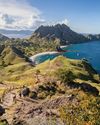
SULAWESI SENSATIONS
There are worlds within worlds and marvels untold waiting to be experienced on Indonesia's remote islands.
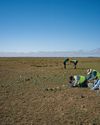
SEARCHING FOR AUSSIE DINOSAURS
Our understanding of where to find ancient life in Australia has been turned on its head by a new appreciation of the country's geology. Now the world is looking to our vast outback as the latest hotspot to locate fossils.
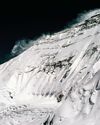
THE HARDEST NIGHT
The first Australian ascent of Mt Everest in 1984 is one of the great feats of mountaineering. Climbed by a small team semi-alpine style, with no bottled oxygen, via the Great (Norton) Couloir, it remains unrepeated 40 years later.
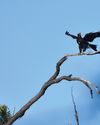
WEDGE-TAILED WONDER
The chance discovery of an eagle nest leads to an extended vigil observing normally hidden behaviours of one of nature's supreme winged marvels.
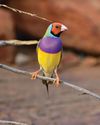
BURDENED BY BEAUTY
Northern Australia's Gouldian finch survives in huge numbers in cages around the world, but its wild population continues to struggle.
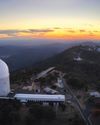
A TELESCOPE FOR A GOLDEN AGE
After a stellar 50 years as one of the country's major scientific assets, the AAT continues to play a major role in keeping Australian astronomy on the world stage.
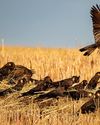
COCKY WHISPERING AT COOMALLO CREEK
This patch of remnant bush on the edge of the West Australian wheatbelt is a place loved by one of Australia's rarest bird species and the man who has studied the site for more than 50 years.

A PIONEERING PAIR
Louisa Atkinson and her mother, Charlotte, were among Australia's earliest authors, and pioneers in women's rights.

THE LONGEST WALK
Lucy Barnard is walking from Argentina to Alaska -the length of the Americas - on an extraordinary journey of endurance and adventure.
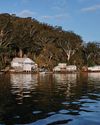
SECLUDED, BUT NOT ALONE
In an era of heightened social isolation, where many of us lead lonely lives, Dangar Island offers the chance to be part of a supportive, connected community.